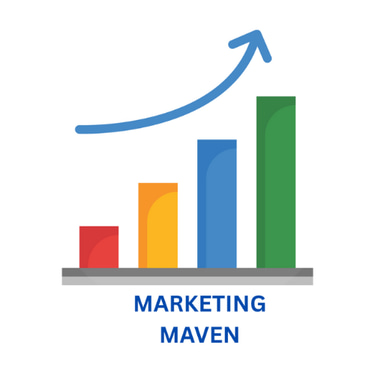The Future of AI in Digital Marketing
Artificial Intelligence (AI) is transforming digital marketing in ways we could only imagine a few years ago. In 2025, AI is no longer just an optional tool – it has become the backbone of marketing strategies. From personalized content to predictive analytics, AI helps businesses understand their customers better and deliver exactly what they need at the right time. One of the biggest benefits of AI in digital marketing is automation. Tasks like sending emails, running ads, or analyzing customer data that once took hours can now be done within minutes using AI-powered tools. This not only saves time but also reduces human errors. Chatbots, for example, have become a common feature on websites, providing instant responses to customers and improving their overall experience. AI also plays a critical role in customer personalization. By analyzing behavior, search history, and purchase patterns, AI allows marketers to create hyper-targeted campaigns. For instance, product recommendations on e-commerce websites or personalized email suggestions are all powered by AI. Predictive analytics further enables businesses to forecast trends and make smarter decisions about products, services, and marketing campaigns. Moreover, AI in digital marketing makes ad targeting more efficient. Platforms like Google and Meta already use AI to optimize ads and ensure they reach the right audience. This means businesses get better results at lower costs. As technology advances, AI will continue to enhance creativity too, with tools that generate ad copies, graphics, and even video content. The future of AI in digital marketing is about smarter, faster, and more personalized customer interactions. Businesses that embrace AI will stay ahead of competitors, while those who ignore it risk being left behind. In short, AI is not replacing marketers – it is empowering them to work more strategically and effectively. AI is excellent for creating quick, structured, and error-free content. It can generate multiple variations, optimize for SEO, and adjust the tone of voice as per the requirement. This saves a lot of time for marketers and allows them to focus on strategy. However, machines lack human emotions and creativity. They cannot fully understand cultural context, humor, or emotional storytelling the way humans can. For example, AI can write a blog about digital marketing trends, but a human writer can add personal experiences and unique perspectives that make the content more engaging. So, the answer is simple – AI can assist in content creation but cannot replace human creativity. The best results come when AI and human writers work together. AI provides speed and data, while humans add authenticity and emotions.Using analytics tools like Google Analytics, Facebook Insights, Instagram Analytics, HubSpot, and SEMrush, marketers can find out which strategies are working and where improvement is needed. For example, if you run an ad campaign, analytics can show how many people clicked, how long they stayed, and whether they took action like purchasing or signing up. This data-driven approach helps in making smart decisions, optimizing budgets, and improving future campaigns. In short, digital marketing analytics turns raw data into useful insights that help businesses grow faster and smarter online.
